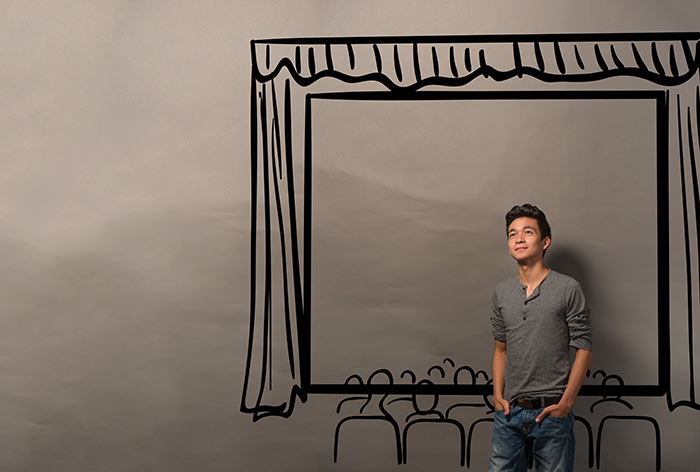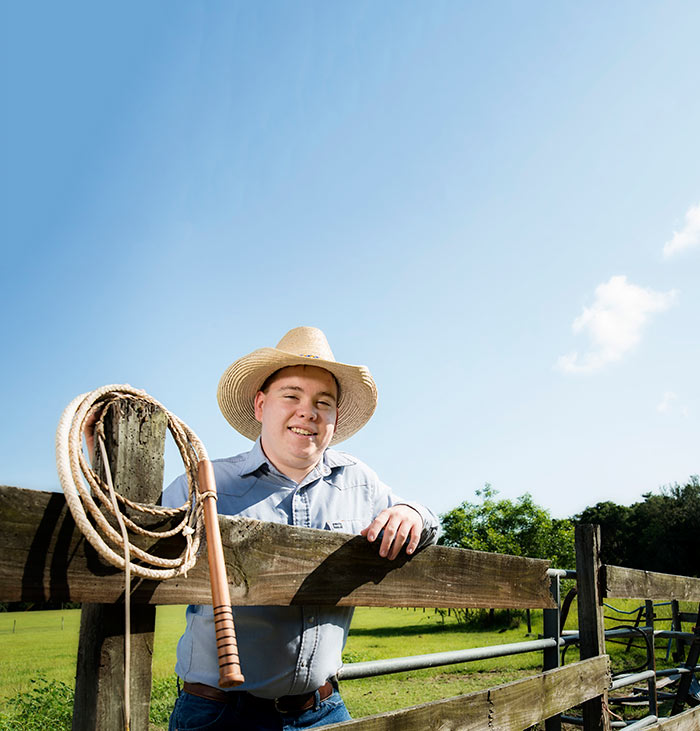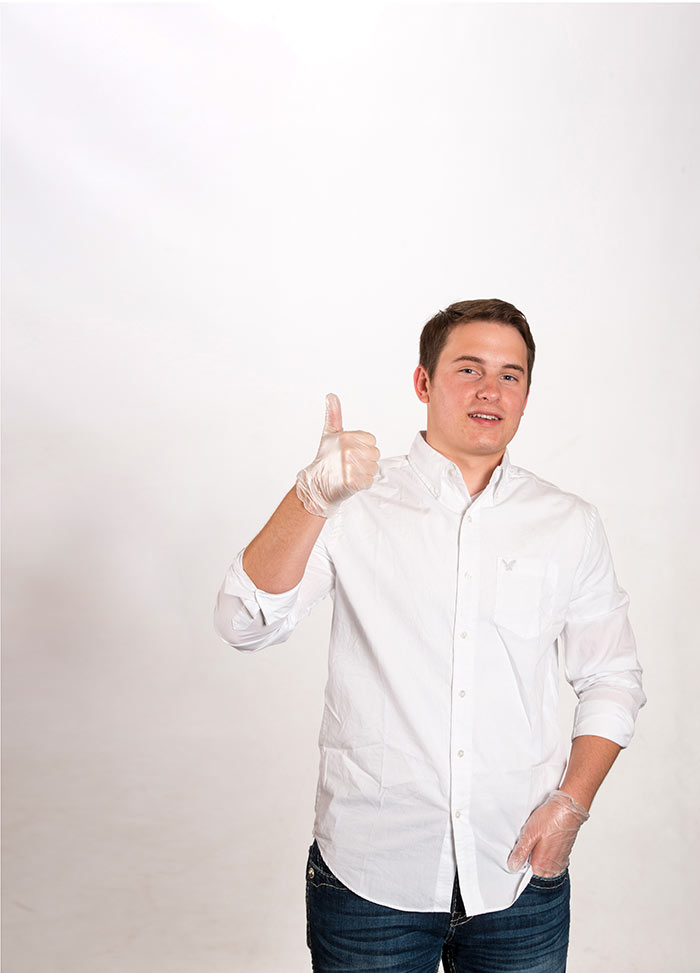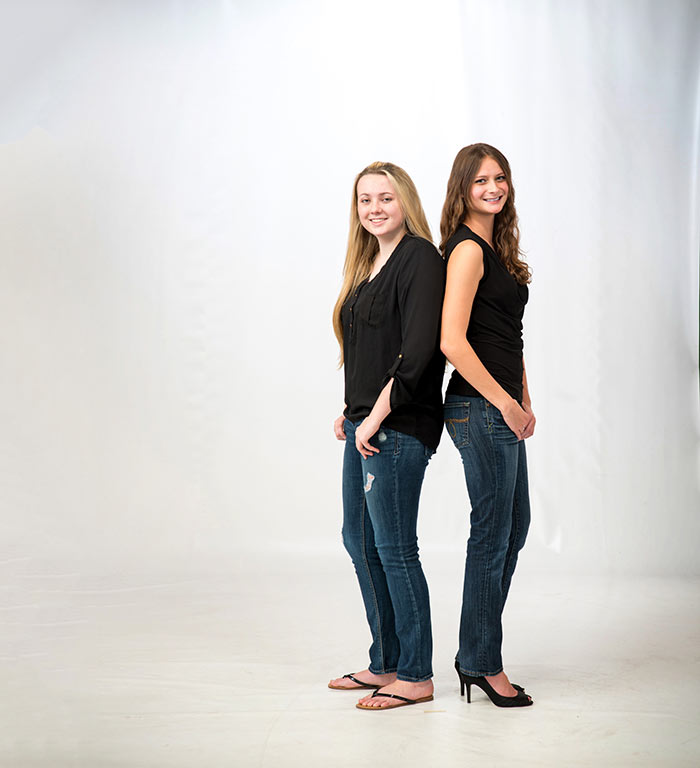
Kodachrome / Alex Moy
Alex Moy is a self-professed daydreamer. As a young boy he had a very vivid imagination, and he created elaborate stories around events in his everyday life. When his parents bought him a video camera for his 11th birthday, he then had an avenue to bring those daydreams to life.
“At first I just practiced and practiced. Then I began to read and research everything I could find on filmmaking,” he says. “When I love something I give it all I have, and I gave it 110 percent.”
It didn’t take Alex long to produce his first short film.
“On my 14th birthday, I made a film called Precognition,” he says. “I decided to do it on my birthday because I had all my friends in one place at my party, and it worked out great. What really clicked for me and helped me decide to make filmmaking a serious part of my life is when I had a screening of the film for my youth-group at my church, Meadowbrook Church in Ocala. There were about a hundred students there, and they all stood and clapped as it ended. It was a surreal moment for me, and I knew right then that this is what I wanted to do with my life. I am very grateful to my church for believing in me; they are very supportive of the arts and have played a key role in my journey.”
Alex, now 17, has come a long way in the six short years since he received his first video camera. Last year he won the Audience Choice Award for his short film titled Protected at the inaugural Silver Springs International Film Festival. He was then contacted by Angela Busler at the Power Plant Business Incubator in Ocala, where he was set up with an office/studio to “incubate” his fledgling business, ThatsHowItsDone Productions.
“I was not offered just a business incubation program, I was offered an opportunity to live out my dream of being a filmmaker and businessman,” Alex says. “We have an office that has room for a small studio with a green screen for special video production. I am so grateful to the Power Plant for giving me the start I needed. The love and support they have shown has really helped me get my business off the ground.”
The Power Plant Business Incubator is an innovative project created by the Ocala/Marion County Chamber of Commerce and the Economic Partnership (CEP). The incubator was designed to provide a place that attracts early-stage innovative companies and enables them to grow and flourish. It is there to give budding entrepreneurs a hand up in today’s business world… and that’s just what the Power Plant has done for Alex.
Alex owns ThatsHowItsDone Productions along with his parents. The company produces corporate television commercials, web-commercials, wedding and music videos, develops highly creative marketing campaigns, produces short films and soon will begin producing feature films. After only one short year, the company is already looking for room to expand.
“We just need more room,” Alex says. “We are hoping to increase our team of 10 and expand our services. We are currently seeking a building large enough to house a good-sized studio along with office space for other creative team members to join us. We want to be able to produce feature films completely in-house.”
So far, Alex has directed three short films, Precogntion, Protected and his latest film, which received great reviews at this year’s Silver Springs International Film Festival, Less Than Nothing. All of Alex’s films have positive messages of faith and hope, and he says his objective is to inspire his audiences in all areas of life. He hopes to maintain that theme in all of the films he directs.
Alex’s future plans include starting his first feature film by the time he turns 18.
“I have a couple ideas in mind, and I hope to start filming my first feature soon. It’s a goal I set for myself, and it’s something I’m looking forward to achieving,” he says.

Crack That Whip / Cameron Cato
When Cameron Cato was a child, the crack of a whip piercing the morning air was as common as the lowing of cattle on his family’s 15-acre ranch in Summerfield. By the age of 4, he had learned the art of whip cracking and soon learned that for him it was “a God-given talent.”
By 9 years of age, he had begun to plait his own whips, and as he practiced over the years, he became so good that four out of the last five years he has been named the Florida Whip Popping Champion at the Florida Ranch Rodeo State Finals and Cowboy Heritage Festival in Kissimmee. He was even flown to California in 2012 to appear on the Nickelodeon television show Figure It Out.
Cameron, who is a 17-year-old student at Lake Weir High School, has been selling his handmade cow whips for many years, mostly advertising through word-of-mouth, although he now hands out business cards for “Cato’s Custom Cow Whips” at rodeos and cowboy get-togethers.
“I make two kinds of whips,” he says. “I make them out of nylon, and I make them out of deerskin. Nylon became popular back in the 1970s because it makes a good whip and it doesn’t require as much care as a leather whip. If a leather whip gets wet, it has to be carefully dried and then re-oiled with neatsfoot oil. You also have to make sure it’s kept away from mice, rats and dogs, because they will chew on it. The nylon whips can get wet, and it doesn’t affect them, so they are much easier to own.”
Cameron says that even though both whips produce the same result, they are very different when it comes to making one.
“I can make an 8- or 10-foot nylon whip using 650 parachute cord in a day or two. Basically, all you have to do is cut the nylon to length and plait it. But it takes a much longer time to make a leather whip,” he says. “To make a buckskin whip, I use old Florida primitive cow-whip-making techniques that were taught to me by master whip maker George Altman of Wauchula. I use doeskin because it’s more uniform in thickness, and it takes about 35 days to tan the doe hide. Once the leather is tanned, stretched and dried, it takes another couple of days to plait it into a whip. Right now, I sell my nylon whips for $20 a foot and the buckskin whips go for $30 a foot. I can customize any length whip and am very particular about turning out the very best product possible.”
Cameron plans to attend Warner University in Lake Wales where he will major in Agricultural Business Management. He plans to continue making whips for as long as possible.
“My dream is to manage a large farm, but I will always continue to make whips,” he says. “I hope to continue to carry on the Florida Cracker traditional style of whip-making throughout my life. There are only three or four traditional whip makers out there, and I don’t know of any others my age. It’s important to carry on tradition.”

Can’t Touch This / Michael Ergle
College of Central Florida student and Ocala resident Michael Ergle pulled up to a local gas station, took one look at the pump handle and had a possibly life-changing idea.
“It was so gross that I could hardly bear to touch it,” he says. “I thought, ‘Wouldn’t it be nice to have a pair of gloves to protect me from the nasty stuff that is all over that handle?’”
The idea wouldn’t leave Michael’s head, and he shared it with his parents and grandparents. They agreed that the idea was a good one, and Michael sketched up plans for a unique type of hands-free glove dispenser that can be placed in germ-laden areas for free public use.
“I am in the process of filing for a patent, and I hope to have a prototype available within a few months,” he says. “I would like to incorporate some type of antibacterial substance inside the glove as a hand cleanser, and I want to make sure they are biodegradable.”
Michael hopes to sell the dispenser and gloves to businesses such as gas stations, hospitals, stores or any public area where germs are easily spread. Patrons can simply put on the gloves while performing whatever task they choose, and then simply discard them into any available waste receptacle.
“I hope this will help in the control of germs that spread illnesses and would be a positive thing,” says Michael. “So many diseases are spread through germs that can live for many hours on things like pump handles and door handles. I believe this idea could keep a lot of people from getting sick needlessly.”

Under Pressure
Katelyn Alvies & Jordan Brown
As members of the Vanguard High School International Baccalaureate Diploma Program (IB Program), Katelyn Alvies and Jordan Brown have already exhibited their eagerness to learn and a desire to excel academically. The program, designed for highly motivated secondary students, is so rigorous that “Florida universities award up to 30 credit hours for the IB diploma.”
When the instructor of their IB Business Management class told them about the Ocala/Marion County Chamber and Economic Partnership’s inaugural Youth Business Plan Competition, the two friends sprang into action.
“We were told that as a class project we could submit a business plan to the competition,” says Katelyn. “We had a good idea, we put it together and made a presentation, and we won first place.”
First place won the pair $1,000, a one-year affiliate membership at the Power Plant Business Incubator and a one-year Entrepreneur Level Partnership with the CEP.
“We named our company Flex Tech, and the product we designed was a compression sleeve, such as the type you see worn by athletes, that contains mesh graphene sensors that can relay vital medical and physiological information to an external cloud via wireless transmission,” says Jordan. “Katelyn came up with the idea of the sleeve and the sensors, and I connected it to a wireless cloud. It was a team effort.”
“The compression sleeve is a very versatile idea. It can be used in many different settings,” says Katelyn. “It can be used to sense too much strain on overworked or injured muscles for athletes, or it can be used in the home to detect unsafe drops in blood pressure for older or ill people. There are many different ways they can be used. The sensors are mesh graphene, and they are very flexible. This makes the sleeve comfortable, and it doesn’t interfere with normal activities. The sleeves will be customized for each person, so they will fit all body types.”
The girls have access to office space at the Power Plant but have been unable to take advantage of the site so far due to their grueling academic schedules.
“We have taken advantage of the seminars presented through the CEP,” says Jordan. “And they have been very helpful in teaching us what it takes to succeed in the business world and to be a better entrepreneur. We have also made a lot of contacts, met a lot of new people and made connections within the community. We are very grateful for this opportunity.”
Both girls plan on attending college but seem destined for disparate careers.
“I haven’t decided which college I want to attend,” says 17-year-old Katelyn, “but I know I want to major in biomedical engineering. I have always been interested in the medical field and engineering, but I didn’t want to get into the physical part of actually operating on patients and that type of thing, so this field seemed perfect for me. I have always had ideas of things I’d like to make and create, and I think this field will provide me that opportunity.”
“I want to major in finance and political science,” says Jordan, now 16. “I am also very interested in communication and broadcast television.”
The girls say they are in the process of filing a patent for their design but say that production would still be years away following their college graduations.

Apply Yourself / Gabe Pierannunzi
Gabe Pierannunzi started his company, Appuccino, a little more than a year ago when he was only 17 years old. After only one year in business, he talks like a veteran businessman.
“I have learned so much in this one year,” he says. “When I started, I knew how to write and develop apps, but I have learned so much about what it takes to have a successful business through contacts and networking. It has been an amazing year.”
Gabe, who wrote his first line of basic HTML code when he was 9 years old, now creates apps for local businesses that want to reap the many advantages of a solid presence in the mobile world.
“I began seriously writing code when I was 16. I am very self-motivated, and I pretty much learned by trial and error. If I needed to know something I Google searched it and then taught myself,” he says. “I believe mobile devices and apps are the wave of the future, and my company is fully prepared to meet the needs of our clients.”
Gabe says Appuccino is currently working on a “check-in” app that can be used at various businesses. When a client comes in, instead of filling out information by hand on paper forms, they can simply wave their smartphone in front of the business’s iPad and their information will automatically and instantly be uploaded into the office’s computer system.
Gabe recently created an online video tutorial describing how to create an app using the Apple programming language Swift.
“The video took me a couple of weeks to make on my own, and I sold it online for $99 a copy. Within three weeks I had sold 1,000 copies,” he says. “That was pretty impressive.”
Gabe says his business will soon be expanding but will maintain its base office in Ocala. He can be contacted at appuccino.org for more information.






